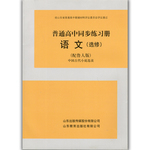题目内容
A group of robbers dug their way into the basement of a bank in Paris and emptied almost 200 private safes(保险箱).
They entered the Credit Lyonnais branch using building 16 (equip) to dig holes and destroy walls 17 Saturday night. They tied up a security guard and spent 18 next nine hours robbing the bank.
One investigator described ![]() the robbery 19 a “professional job”. The robbers came in at about 22:00 on Saturday 20 left at 7:00 on Sunday. They entered through the basements of the neighbouring building, digging through a series of tunnels and making a hole into a wall of 80 cm thick to get into the bank, 21 was having building work at the time.
the robbery 19 a “professional job”. The robbers came in at about 22:00 on Saturday 20 left at 7:00 on Sunday. They entered through the basements of the neighbouring building, digging through a series of tunnels and making a hole into a wall of 80 cm thick to get into the bank, 21 was having building work at the time.
When they left, the robbers set the place on fire to remove any trace of evidence, 22 (switch) on the anti-fire system and flooding the building. 23 (fortune), the guard escaped unharmed.
24 is difficult to estimate(估计) the total value of what 25 (steal) as only the bank’s clients(储户) know the content of their private safes.
主要讲述巴黎银行抢劫案。
16. 【解析】equipment 从use可知equip用名词形式equipment。
17. 【解析】on 具体到星期六的晚上用on。
18. 【解析】the 特指这九个小时,用the。
19. 【解析】as describe. . . as把……描述为。
20. 【解析】and came和left是两个表示时间顺序的动词,故用and连接。
21. 【解析】which which引导非限制性定语从句,代指前面的the bank。
22. 【解析】switching and连接switching和flooding。
23. 【解析】Fortunately 副词修饰整个![]() 句子。
句子。
24. 【解析】It it 是形式主语,真正的主语是不定式短语。
25. 【解析】was stolen 很难估计被偷的总价值,故用被动语态。

 海淀黄冈名师导航系列答案
海淀黄冈名师导航系列答案 普通高中同步练习册系列答案
普通高中同步练习册系列答案A few days ago we – that’s me and the husband – took a cab to the station. Chat with the driver fell to the wrong of cyclists, and the misunderstanding of the road rules. So far as the rules of the road go, there seems to be one basic principle: when you are driving a car you hate bikes, when you are riding a bike you hate cars (and I guess walkers hate everyone).
There is an obvious difference of viewpoint built in here. It wasn’t until I started to drive a car (almost 20years after I had first rode a bike) that I actually realized that you could not see a cyclist at night without lights. In fact I now want to shout at late night cyclists without lights(like motortists once did at me): “You’ll get killed, sunshine, I can’t see you.”
The problem is that cyclists do ride headlong into danger. It's not just not having lights. It’s biking on pavements (and so threatening to injure a load of innocent walkers in the process) and biking down one-way streets the wrong way.
I admit that I do bike the wrong way down a one-way street sometimes. My feeble(软弱无力) defense is that I try always to do it as if I know I was doing wrong. That is slowly, with an apologetic look on the face, and ready to get off at any minute. I can’t bear the guys(一伙人) (usually, but not always it is guys) who do it as if they owned the place, and at high speed.
So cyclists are not entirely innocent. But they are among the disadvantaged groups, because the bottom line is that a car or a lorry can kill a cyclist and not the other way around.
1.When did the writer realize the danger for late night cyclists without lights?
A. Not until she became a driver herself.
B. Not until she had driven a car for 20 years.
C. After she was shouted at by a motorist.
D. After she was once knocked down by a group of guys.
2.When the writer biked the wrong way down a one way street, she felt_________.
A. angry B. guilty C. innocent D. proud
3.Which group is most likely to face danger according to the writer?
A. walkers B. passers-by C. cyclists D. motorists
4.What can we learn about the writer?
A. She often took a cab with her husband.
B. She has been a motorist for over 20 years.
C. She used to ride a bike without lights at night.
D. She often biked the wrong way down a one way street.